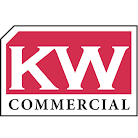Due Diligence Checklist When Buying a Standalone Restaurant Property (Bexar, TX)
Introduction
Buying a standalone restaurant property is a significant investment — and one you can’t afford to rush. While the kitchen layout, parking lot, or location might catch your eye, it’s the due diligence process that protects you from legal headaches, unexpected costs, and business disruption.
In this blog, we’ll walk through the most important areas of due diligence every buyer should complete before closing on a restaurant property.
🔍 1. Zoning and Permitted Use
Before anything else, confirm the property is zoned for restaurant use. Even if it previously operated as one, zoning laws may have changed. Ask the city or county about:
-
Current zoning classification
-
Alcohol service restrictions (especially for bars or late-night spots)
-
Outdoor dining, drive-thru, or signage limitations
➡️ Pro Tip: Get zoning confirmation in writing from the city planning department.
🧯 2. Fire, Health, and Safety Compliance
Restaurants face strict regulations. Before purchasing, verify:
-
Fire suppression and grease hood systems are up to code
-
Emergency exits, lighting, and fire alarms meet local requirements
-
Health department certificates are current and transferable
-
Pest control and sanitation standards are being met
A failed health inspection can delay your opening or lead to fines.
🏗️ 3. Structural and Mechanical Systems
Even newer properties can hide costly issues. Hire licensed professionals to inspect:
-
Roofing, plumbing, and electrical systems
-
HVAC capacity and condition
-
Sewer line and grease trap functionality
-
Water pressure and drainage in kitchen and bathrooms
Don’t assume “working” means “code-compliant.”
📜 4. Title and Environmental History
A title search is a must. Make sure:
-
The property is free of liens, easements, or unresolved disputes
-
There are no pending code violations or lawsuits
-
You order a Phase I Environmental Site Assessment (especially if it’s an older property or near gas stations, dry cleaners, or industrial areas)
Environmental issues can make a property unfinanceable or limit future resale.
💡 5. Permits, Licenses, and Previous Use
Ask the seller to provide:
-
Existing business licenses, occupancy permits, and health clearances
-
Any past issues with alcohol, noise, or neighborhood complaints
-
Equipment warranties or lease agreements (if included in the sale)
If the previous restaurant failed, try to understand why — location, pricing, management, or something else?
💰 6. Financial and Operational History (If Applicable)
If the property is being sold as an ongoing business or with restaurant assets:
-
Review past tax returns or profit/loss statements
-
Confirm all equipment is owned (not leased)
-
Check for unpaid vendor invoices or employee liabilities
Don’t buy someone else’s problems without knowing the full picture.
🧾 7. Insurance, Taxes, and Utility Records
Request:
-
Property tax history and any assessments
-
Utility bills (electric, water, gas) to estimate operating expenses
-
Current insurance policy details and claims history
If the property is in a flood zone or high-risk area, insurance premiums could be much higher than expected.
📋 Final Checklist
Before closing, make sure you have:
✅ Zoning confirmation
✅ Inspection reports (structural, mechanical, environmental)
✅ Health and safety certificates
✅ Title report and Phase I ESA
✅ Equipment list and condition
✅ Business licenses and permits
✅ Financial records (if applicable)
✅ Utility and insurance details
Conclusion
Due diligence isn't just paperwork — it’s your shield against regret. It uncovers what’s behind the walls, beneath the hood, and in the fine print. Skipping this step or rushing through it could cost you thousands later.
If you're considering buying a restaurant property and want expert guidance through the due diligence process, I’d be happy to help you navigate each step with confidence.
Service area: Bexar County and Surrounding
.png)


Comments
Post a Comment